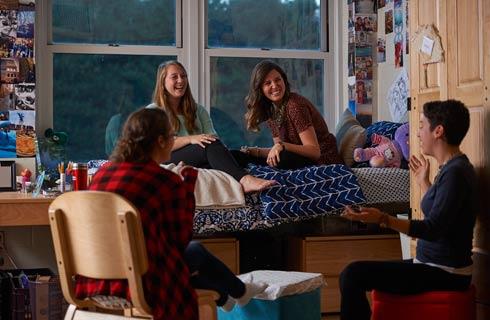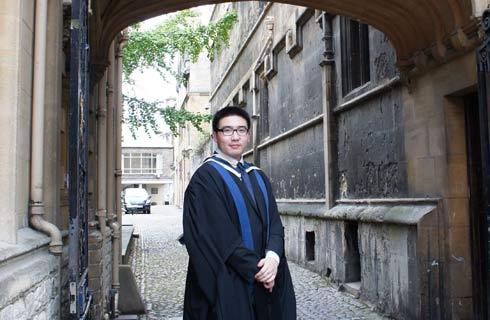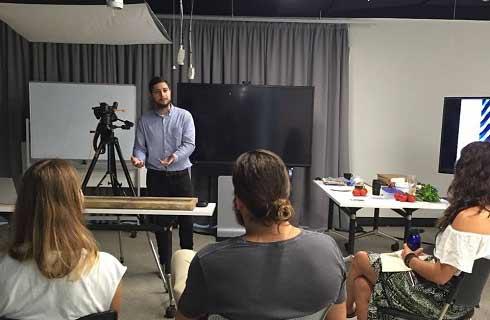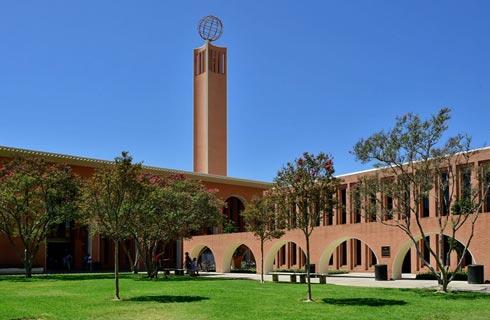机器人工程学学士学位(荣誉学位)
Bachelor of Engineering (Honours) in Robotic Engineering

学历文凭
Bachelor Degree with Honours

专业院系
Computer Science and Electronic Engineering

开学时间

课程时长

课程学费

国际学生入学条件
IDP—雅思考试联合主办方

雅思考试总分
- 雅思总分:
- 托福网考总分:
- 托福笔试总分:
- 其他语言考试:
CRICOS代码: H615
申请截止日期: 请与IDP联系 以获取详细信息。
课程简介
Robots are increasingly important in our society. They are used in autonomous driving, domestic assistance, health care, industrial manufacturing, search and rescue operations, and hazardous environment exploration and monitoring. Our BEng Robotic Engineering will equip you with the knowledge and skills to contribute to this rapidly-changing and innovative industry, or to academic research in the area. The course uniquely combines electrical engineering and computer science, allowing you to gain both theoretical and practical knowledge in areas such as navigation, motion control, sensory perception, autonomous decision making, and machine learning, so that you can develop your own robotic systems.
相关申请
 预科
预科 奖学金
奖学金 实习机会
实习机会 在校学习
在校学习 跨境学习
跨境学习 校园授课-线上开始
校园授课-线上开始 在线/远程学习
在线/远程学习
开学时间&学费
学费信息仅供参考,请与IDP联系以获取详细信息
| 开学时间 | 时长 | 学费 | 地点 |
|---|
学校排名

世界排名251
数据源:
泰晤士高等教育世界大学排名
关于埃塞克斯大学

埃塞克斯大学是一所广受尊敬的大学,其校区位于英格兰东部,交通便利,可轻松前往伦敦,为学生提供全面的本科和研究生学位课程以及丰富的大学体验。埃塞克斯大学在科尔切斯特和拉夫顿两个校区开设课程,学生可以在这里获得优质的学术资源和高标准的教学。埃塞克斯大学的教师帮助学生迎接生活中的挑战,鼓励学生个性发展、同伴互助学习、批判性思维和独立生活。埃塞克斯大学热烈欢迎国际学生,从开学第一周起就组织了丰富多彩的活动。埃塞克斯大学营造了一个多元化、包容性强的社区,学生可以在这里结交终生好友,创造难忘的经历。埃塞克斯大学还为国际学生提供各种奖学金,以及就业技能方面的支持和研讨会,帮助他们在学习期间和学习结束后成功申请工作。学生通过参加讲座、研讨会和小组学习来推进课程。他们还可以使用艺术与人文学部、科学与健康学部以及社会科学学部的众多设施。热门学科领域包括计算机科学、商业与管理、经济学、法律和健康。埃塞克斯大学与世界各地的大学建立了跨学科的合作伙伴关系,丰富了其研究和学习。学生可以享受两个校区提供的设施--例如行业标准的工作室、编辑室、健身房、校内电影院、公共学习区、学生会社交空间等等
本校相关课程

社会学和管理文学硕士
学历文凭
Masters Degree (Taught)
开学日期
课程费用总额


工商管理硕士:埃塞克斯工商管理硕士
学历文凭
Masters Degree (Taught)
开学日期
课程费用总额


智能系统和机器人科学理学硕士
学历文凭
Masters Degree (Taught)
开学日期
课程费用总额


研究生文凭统计与运筹学
学历文凭
Graduate Diploma
开学日期
课程费用总额


研究生数学和金融文凭
学历文凭
Masters Degree (Taught)
开学日期
课程费用总额


金融与投资理学硕士
学历文凭
Masters Degree (Taught)
开学日期
课程费用总额

其他相关课程

工程四级证书
 希拉巴克斯特培训中心(私立)
希拉巴克斯特培训中心(私立)学历文凭
Certificate IV
开学日期
课程费用总额


工程四级证书-制造
 霍姆斯格兰职业技术学院
霍姆斯格兰职业技术学院学历文凭
Certificate IV
开学日期
课程费用总额


设计文凭(UniLink)(8个月)
 斯威本科技大学
斯威本科技大学泰晤士高等教育世界大学排名:282
学历文凭
Unilink Diploma
开学日期
课程费用总额


专业工程学硕士(生物医学)
 悉尼大学
悉尼大学泰晤士高等教育世界大学排名:54
学历文凭
Masters Degree (Coursework)
开学日期
课程费用总额


工程科学学士
 伊迪斯科文大学
伊迪斯科文大学学历文凭
Bachelor Degree
开学日期
课程费用总额


细木工三级证书
 霍姆斯格兰职业技术学院
霍姆斯格兰职业技术学院学历文凭
Certificate III
开学日期
课程费用总额










 英国
英国